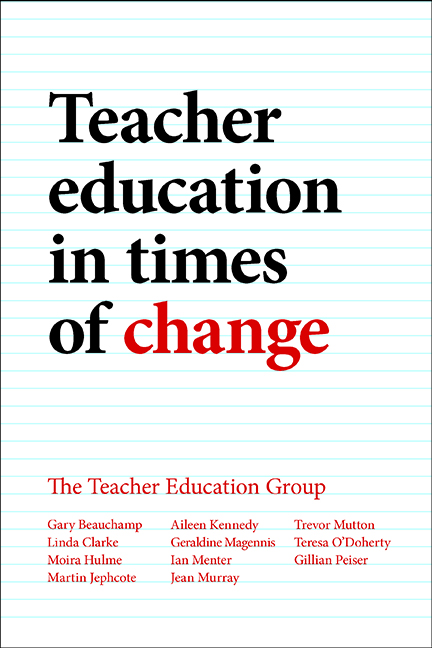Book contents
five - Teacher education policy in Northern Ireland: impediments, initiatives and influences
Published online by Cambridge University Press: 23 August 2022
Summary
Introduction
The report on the first stage of the recent review of teacher education in Northern Ireland highlights a stark policy deficit: ‘At the time of writing this report there is no agreed strategy for Teacher Education in Northern Ireland’ (Grant Thornton, 2013, p 23).
This does not mean that there is no policy, nor that there has been an absence of significant policy developments. It does, however, reflect the singularly perplexing policy landscape that persists in Northern Ireland where several of the most significant policy challenges in teacher education are characterised by a remarkable longevity and seem set to endure long into the future.
This chapter begins with a contextual outline of the distinctive policy-making landscape in Northern Ireland. In examining this landscape, it is clear that both incremental progress and strategy building have often been stymied by a range of local structural and political tensions, which, particularly since the 1999 devolution process, have led to distinctive and persistent local policy impasses. By contrast, there have been many significant local initiatives and many important policy developments have occurred as a result of policy transfer, largely from elsewhere in the United Kingdom (UK). At various times, these transfers have taken the form of one or more of the elements of Dolowitz and Marsh’s (2000) classification of policy transfer: copying, emulation, combinations and inspiration. It is debatable, although not for analysis here, whether some of the key local initiatives have ever been wholly independent of such transfers. In addition, both demographic and financial pressures have periodically either driven or impeded change.
In order to demonstrate the ways in which these influences have impacted on policy, some key examples of policy for schools and policy for teacher education will be outlined. Focusing largely on post-devolution changes, the core of the chapter explores how both the many reviews of teacher education and some key elements of teacher education policy (institutional arrangements, partnerships and professionalism) are influenced by the tensions between local impasses and local initiatives, demographic and economic pressures and policy transfers. The chapter concludes with an outline of some potential new directions for teacher education policy in Northern Ireland.
- Type
- Chapter
- Information
- Teacher Education in Times of ChangeResponding to challenges across the UK and Ireland, pp. 75 - 90Publisher: Bristol University PressPrint publication year: 2015

